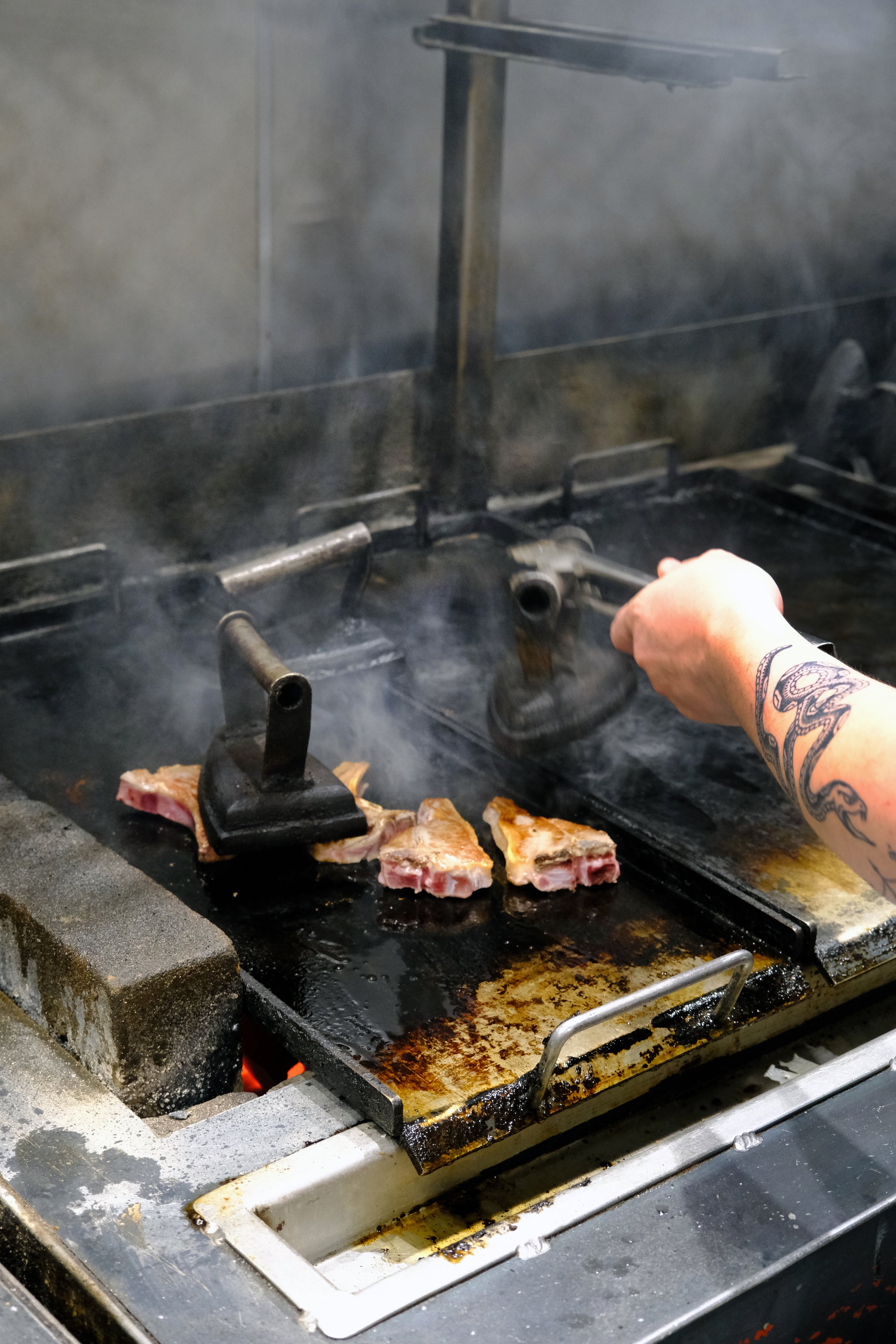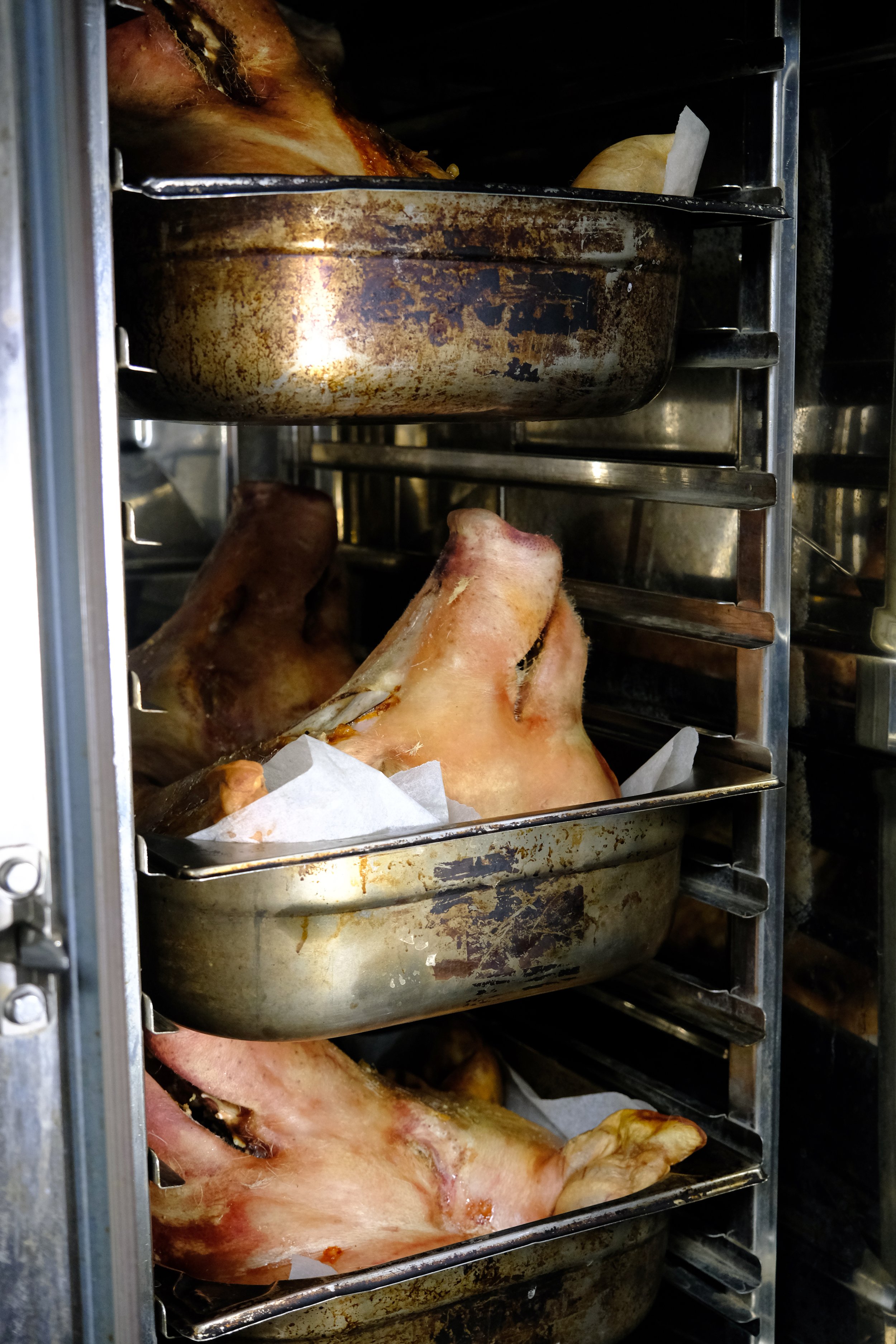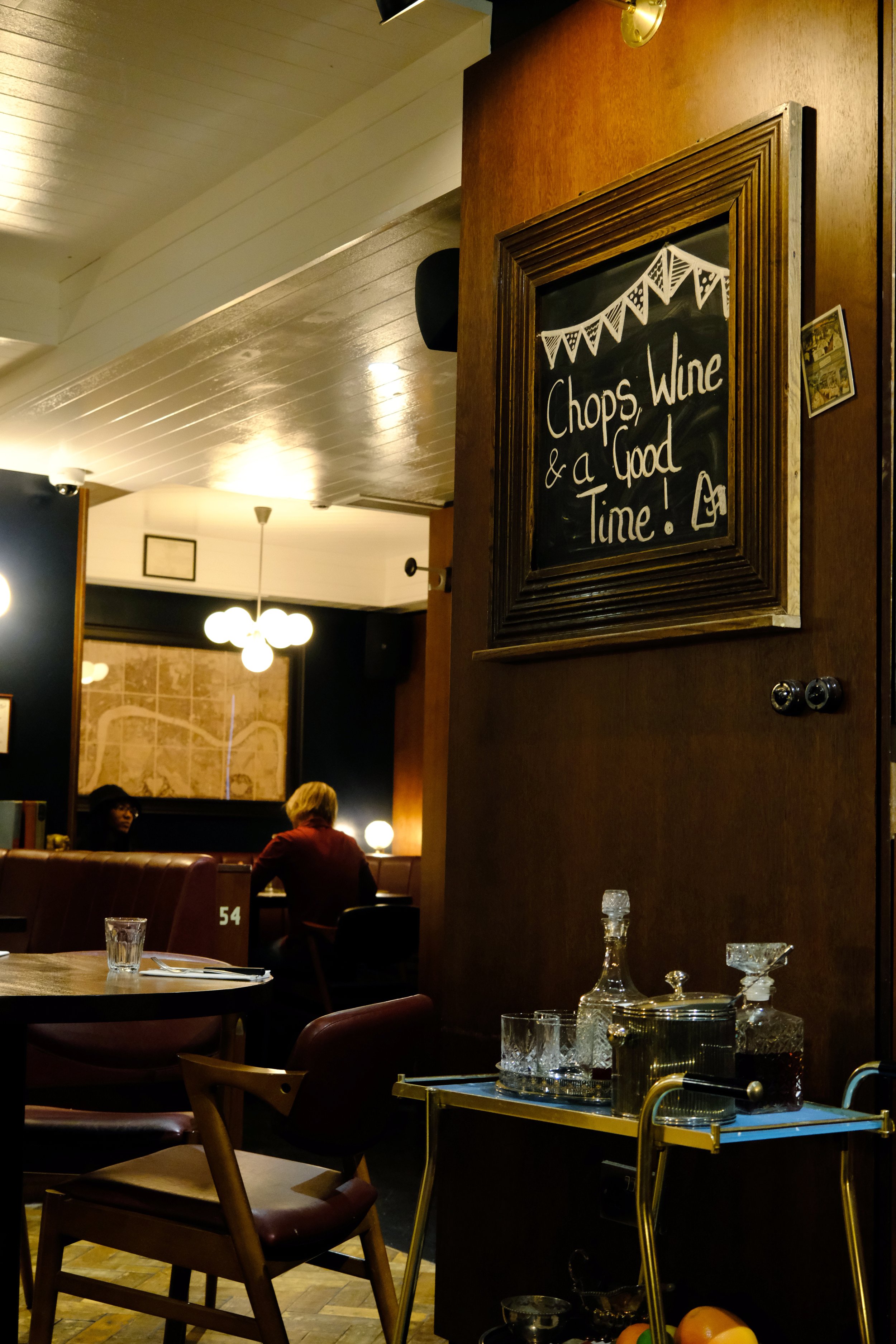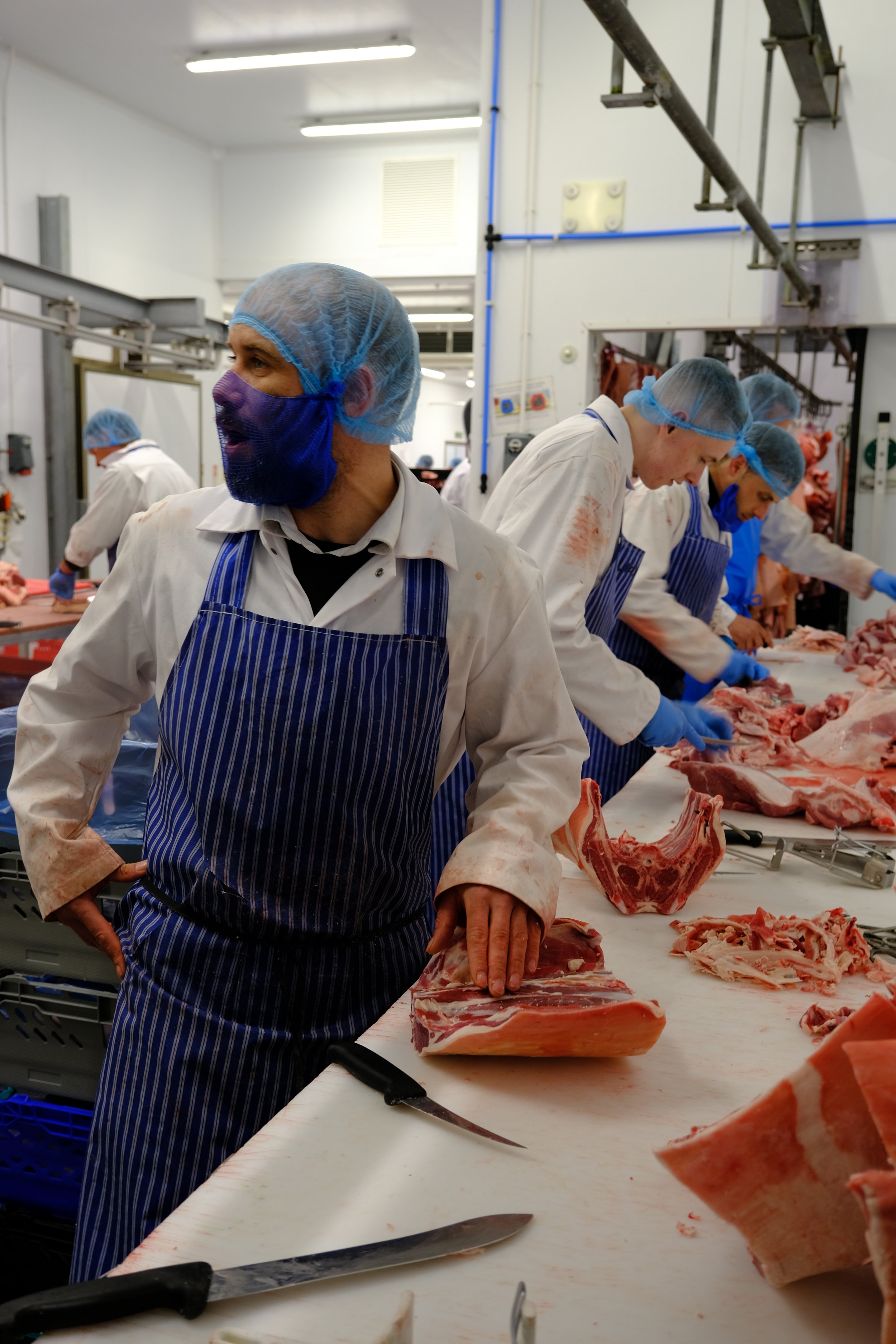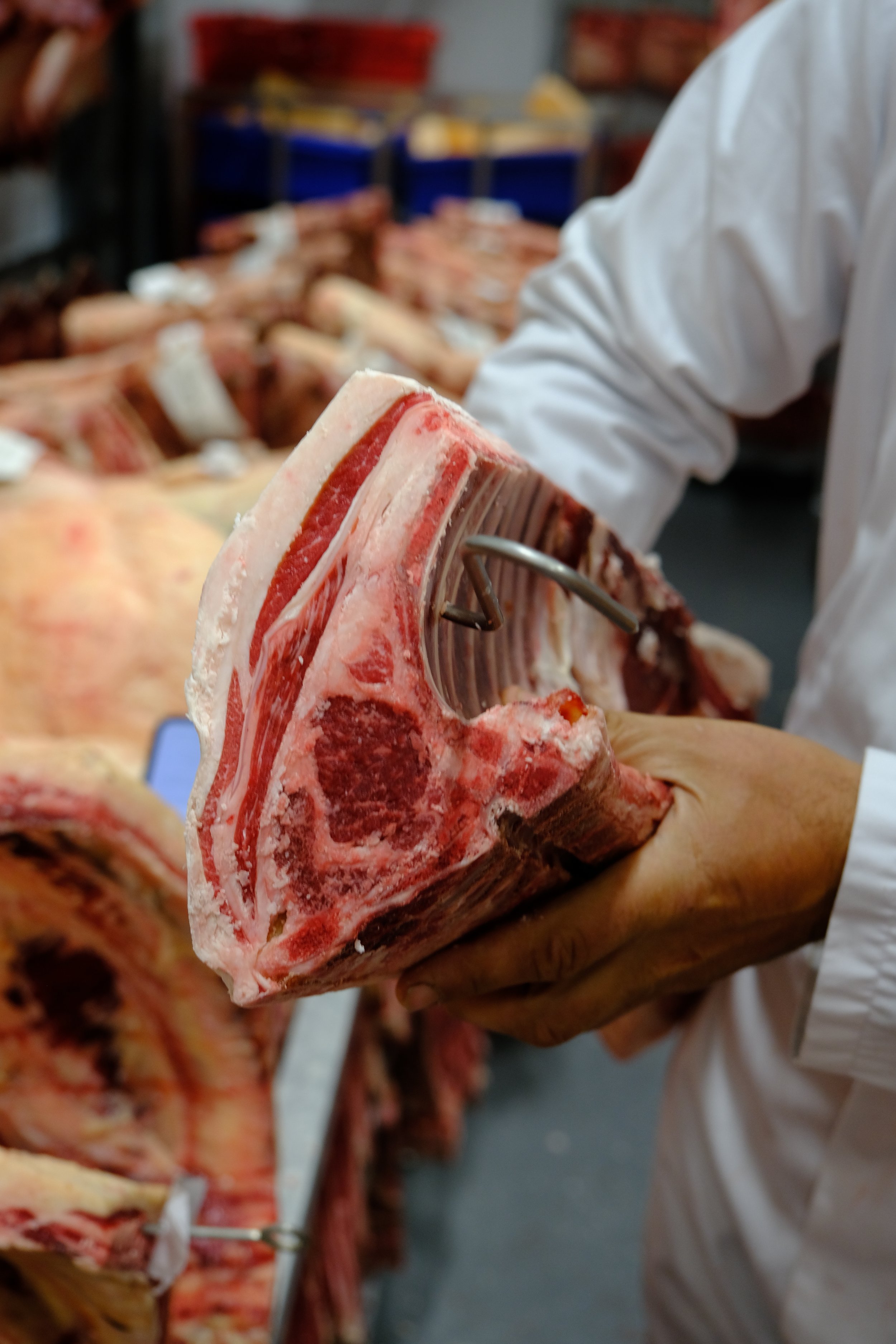The Waiting Game: Gordon Ker of Blacklock
Nothing beats feeling full, knowing the wait was worth it. Nowhere captures the essence of this better than the Blacklock chophouse.
The chophouse belongs to 1690’s London: once a meeting place for all to gnaw and gnash on the bloody goodness of a beast; to talk, and drink, and stuff yourself to the brink. Chophouses sold individual cuts of varying animals – the chop – to voracious, mainly male customers. In the 19th century, when beef became the meat of choice for both men and women across the land, chophouses fell out of favour for new and trendy steakhouses.
Now, with 1.5 billion cows on the planet, nearly 1 for every 5 people, it’s fair to say our bellies are beef mad. But former corporate lawyer and mastermind behind Blacklock, thirty-five year old Gordon Ker, is taking us back to the traditional chophouse. He is a man with a penchant for the past, and a firm eye on the future.
The restaurants are stylish in a cigar-and-whisky way, while still maintaining the old air of commonality so essential to the chophouse.
I met up with Gordon at midday in his Covent Garden restaurant. Courteous in a warm, old world way, he greets all of his staff upon entering, asks for a coffee, then sits down to tell his story. ‘I’m in no way a cook, if I went into the kitchen, I think there would be some issues…’ He laughs. ‘I was working in the city, and I just didn’t think it was very nice. I began to wonder about starting my own business in hospitality and leisure. I had this real passion for how restaurants can make you feel.’
Gordon made the leap and quit law. He then steadily began scouring Britain for the best producers he could work with, and, perhaps inevitably, crossed paths with Matt Chatfield. ‘When I met Matt, I said, “So: I want to open this chophouse in a basement, in Soho – that used to be brothel – and serve only the best quality meat, but for cheap. How does that sound?”, and surprisingly he went along with it. We went to see the space, which he thought was horrid. It was all leaking and decayed.’
A wine glass chimes somewhere in the background as staff prepare for service. I look around the basement we’re currently sat in, taking in the inviting decor that now dresses the space. This is a signature of the Blacklock chophouse; the upmarket basement atmosphere. Cleared of past detritus and residues, the restaurants are stylish in a cigar-and-whisky way, while still maintaining the old air of commonality so essential to the chophouse. ‘Matt did agree to introduce me to Ian Warren after seeing the basement.’ Gordon continues. ‘I tried his meat and it was by far the best… The depth of flavour was exemplary. The fat is very yellow, which is accumulated pigmentation from good grazing. You can instantly tell the animals have had lots of grass, lived naturally and with very low intervention.’
Both Matt Chatfield and Ian Warren create a way of life for their animals that is as close to nature’s intention as possible: a lot of grazing, a whole lot of waiting. Yet, if this approach wasn’t already enough, Ian then chooses to dry age his produce…
Dry ageing meat is tricky business. It needs the right temperature, humidity, air, bacteria, enzymes, and, most importantly, the rarest component of all: time. But Ian insists. He uses entire rooms with controlled humidity to create the best environment for dry ageing up to 55 days. The head of this operation, an employee of Ian’s known as ‘The Meat Whisperer’, coined a name for this section of the butchers: The Meat Cathedral. The moniker of ‘The Meat Whisper’ betrays the devout attitude that yields an inimitable tenderness.
This approach also takes into account the age of the animals that Ian and Matt work with. Matt’s older ewes could produce a tough end product, but dry ageing tenderises the meat, and releases the mature flavour. Upon my visit to The Meat Cathedral I could see the marbled mutton slowly transforming into something sublime; a rich pink colour transitioning slowly to light auburn. Gordon believes in this timely transformation devoutly too, sticking strongly to his belief that ‘Even the best cook can’t make a shit chop taste good!’
Back in Gordon’s Covent Garden chophouse, I got to sample all this splendour. I ordered pigs head on toast, Matt’s Cull Yaw, lamb chops and rump cap along with their outrageously crispy beef dripping chips, heritage tomato salad and oddly moreish Parmesan kale. Then, to top it all off, a mound of cheesecake served table-side and a separate chocolate sorbet.
I know that a plate doused in blood and discarded bone isn’t for everyone, but even if the food here doesn’t tickle your fancy, I think the workplace ethos of Blacklock will…
Service sprung into life and the basement was flooded with aromas of searing meat. The food arrived on salvaged china plates with an aura of homely feasts. I armed myself with knife and fork, poised, and indulged.
Even before the viscous, life affirming gravy glided down upon the dishes, the juices of the meat alone made for reverie. The Cull Yaw sat afloat a cloud-like crumpet, which slowly soaked in the drippings from the mutton, just waiting to rain out its deliciousness like a downpour in Cornwall. The archaic pigs head unleashed primal bliss, the pickles and chillies accentuating the intense aromatics from oven roasted skin and fat. The chops and rump cap were so expertly grilled head chef Charlie should be given a knighthood for his services to sublime grilling: the outsides adequately flamed; the insides rare, full of moisture and unaffected pure flavour. The tomato salad and Parmesan kale fresh, alive and the absolute unquestionable accompaniment for a meal heavy on the palate.
Streaks of gravy, grease, and goodness I later mopped up with the golden chips, my last mouthfuls spent shivering from the crunch. The plates were collected squeaky clean. Gleeful praise left my lips; then the cheesecake and sorbet arrived. The sorbet was indulgent, the perfect after-meal kick, absolutely grand and nothing to knock. But we need to talk cheesecake…
Operating on a ‘say when’ basis, the waiter serves you table side. You probably know how this goes. You cooly meet eyes, size each other up, and let the showdown begin. Spoon after spoon quarries the pot. No ‘when’ is to be found. Time elongates. It starts to get morally questionable. Your plate soars Alpine-high and you are suddenly at risk of dying under a cheesecake (or a cholesterol) avalanche. A cinematic bead of sweat rolls down your brow. The table legs creak. People scream. You plead ‘when’. The server breaks eye contact, you’re beaten, and yet you wish you had just one dollop more. You must, I repeat, must, try it.
When the last crumb was snaffled down, I was invited inside the kitchen where Charlie showed me the frier full of beef dripping, the actively roasting pigs heads and the chops pressed under the Blacklock Irons oozing out a goodness, a smell that makes knees weak. Gordon chose the Blacklock name from the Blacklock Foundry that began making the irons in Tennessee, 1896. Using these searing hot irons cooks each side of the chop evenly, locking in the flavour to later explode bite after bite at the table.
Gordon has aced it. Fun still prevails. Times spent dinning here feel easy going and free…
Now, I know that a plate doused in blood and discarded bone isn’t for everyone, but even if the food here doesn’t tickle your fancy, I think the workplace ethos of Blacklock will. Gordon, well versed in the hell-scape that is careerism in the city, is taking a stance against the challenging work-place culture within kitchens. ‘At the law firm, me and my friends all knew we didn’t enjoy our job. Kitchens see a lot of quick staff turnover and labour shortages. I don’t want that.’ He says. ‘It’s important for me that the team know I care, that I have their back. I want to see everyone here progress and develop. I strongly believe that when people are happy they can do great things.’
Hospitality rarely puts much store on happiness. The common scene would be floor staff wearing desperate smiles to avoid dismissal, the chefs tired and chagrined at lectures from an entitled manager… Yet, somehow, Gordon has aced it. Fun still prevails. Times spent dinning here feel easy going and free; much similar to dinners at home with friends and family.
Blacklock is now awaiting its B Corp certification, which will be another success for its name and the team involved. Gordon moves in a precarious game – that of the lucrative but occasionally mercenary London restaurant scene – always showing that no matter how hungry he may be, he is never greedy. His decisions are thought out, considerate of his staff, clientele and the food itself; and based upon an immoveable commitment to quality. I can’t think of anyone else with such a strong stance and enduring ethical approach when the risk of failing is a high as it is here… other than, I might say, Matt Chatfield or Ian Warren.
Gordon is the final feature in our farm-to-table trilogy ‘The Waiting Game’. Ian’s story can be found linked here. Matt’s story can be found linked here. Subscribe to our newsletter for an exciting announcement next week!


